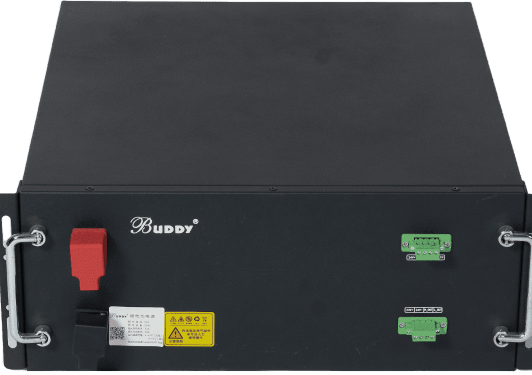The lead-acid battery is one of the key components in the UPS uninterruptible power supply system, which is mainly used to provide emergency backup power in the event of a power outage. The life of UPS lead-acid batteries is usually determined according to the design life of the battery itself, the use of the environment and maintenance. Under normal circumstances, the life of high-quality UPS lead-acid batteries is about 3 to 5 years under normal use and maintenance. However, it is also possible that the life of the battery will vary due to factors such as temperature, the number of charge and discharge cycles, and the environment in which the battery is used.
UPS lead-acid battery is a chemical battery using lead and its oxide as the electrode and sulfuric acid solution as the electrolyte. This type of battery is one of the first rechargeable batteries invented, and because of its mature technology, reliable performance, and relatively low cost, lead-acid batteries are widely used in a variety of backup power systems, including UPS systems, emergency lights, security systems, and other fields.

lead-acid batteries are divided into two types: open type lead-acid batteries and valve control type lead acid (VRLA) battery. Open lead-acid batteries require periodic replenishment of distilled water to maintain electrolyte levels and concentrations; The valve-controlled lead-acid battery, on the other hand, is almost hermetically sealed, and it can re-convert the generated gas into water, reducing the need for maintenance. At present, more valve controlled lead-acid batteries are used in UPS systems, especially colloidal lead-acid batteries and AGM(Absorbent Glass Mat) lead-acid batteries are favored for their excellent performance and low maintenance requirements.
The service life of UPS lead-acid battery is not only affected by product quality, but also related to the following factors: 1. Use environment: temperature has a great impact on the life of UPS lead-acid batteries. The temperature of the battery room should ideally be maintained at 20 to 25 degrees Celsius. For every 10 degrees Celsius increase in temperature, battery life is halved. Therefore, keeping the battery in the right temperature range is crucial to extending its life. 2. Charge and discharge cycle: During the charge and discharge period, the electrode material will change, and long-term charge and discharge will cause the attenuation of the battery capacity. Under normal use, regular charge and discharge cycles help maintain the health of the battery, but frequent deep discharges can shorten the life of the battery. 3. Maintenance: Regular maintenance of the UPS battery, including checking the specific gravity of the electrolyte, cleaning the battery surface, and ensuring good contact with the connecting terminals, can effectively improve the service life of the battery. 4. Charging method: The correct charging method also affects the battery life. Overcharging will cause the battery to overheat and water loss, resulting in reduced capacity; Insufficient charging will lead to sulfation, affecting battery performance.
To extend the life of UPS lead-acid batteries, you can take the following measures: 1. Avoid using and storing batteries in high temperature environments, and keep the battery room ventilated and heat dissipated. 2. Control the cycle frequency of charge and discharge, avoid unnecessary deep discharge, and implement appropriate charge and discharge plans. 3. Use the appropriate charger and set reasonable charging parameters to avoid long-term overcharge or undercharge of the battery. 4. Maintain the battery regularly, and check the appearance, voltage, and electrolyte gravity of the battery. 5. Replace the batteries that are about to reach the end of their life in advance to avoid affecting the performance of the entire UPS system due to old batteries.
In general, UPS lead-acid batteries usually need to be replaced within 3 to 5 years, but through reasonable use and maintenance, their service life can be extended to the maximum extent. Choosing a high-quality battery brand, coupled with good maintenance and a proper use environment, will be a key factor in ensuring the stable operation of the UPS system and reducing accidents.